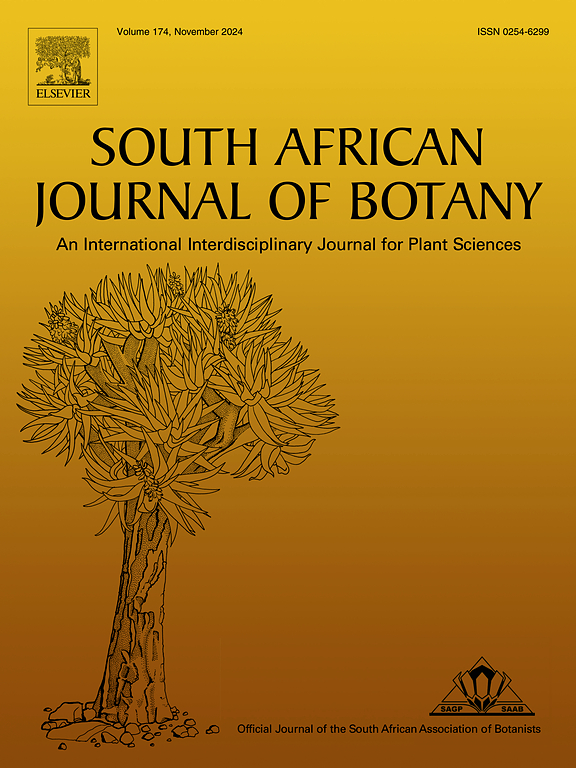Hirsutolide isolated from Arctotis fastuosa induces apoptosis and inhibits viability, migration, and invasion of MCF-7 breast cancer cell
IF 2.7
3区 生物学
Q2 PLANT SCIENCES
引用次数: 0
Abstract
Breast cancer represents the most prevalent malignancy in the female population, significantly contributing to cancer-related mortality rates. However, the excessive consumption of anticancer therapies may result in adverse effects. Therefore, developing natural materials exhibiting superior anticancer properties holds significant relevance. In this study hirsutolide, a sesquiterpene lactone, was isolated from aerial parts of the Egyptian plant Arctotis fastuosa. The phytochemical analysis resulted in the effective isolation and structural confirmation of hirsutolide, which was identified using a range of spectroscopy techniques. The cytotoxicity assay revealed that hirsutolide had strong cytotoxicity against MCF-7 breast cancer cells with (IC50 = 62.3 µM), while exhibiting slighter toxicity towards MRC-5 cells (IC50 = 155.1 µM). Using annexin V-FITC assay, treatment of MCF7 cells with 31.1 µM for 48 h resulted in a significant increase in total apoptosis percentage from 39 % to 60 %. Additionally, Caspase 3 expression level was increased after treatment. Moreover, hirsutolide effectively inhibited cell migration and invasion in MCF-7 cells. Docking studies suggested that hirsutolide binds to the Bcl2 active site, potentially influencing apoptotic pathways. These findings highlight hirsutolide's promising potential as a therapeutic agent in breast cancer treatment.
从鱼腥草中分离出的 Hirsutolide 可诱导 MCF-7 乳腺癌细胞凋亡并抑制其活力、迁移和侵袭
乳腺癌是女性人口中发病率最高的恶性肿瘤,大大提高了癌症相关死亡率。然而,过量使用抗癌疗法可能会导致不良后果。因此,开发具有卓越抗癌特性的天然材料具有重要意义。本研究从埃及植物 Arctotis fastuosa 的气生部分中分离出了一种倍半萜内酯--hirsutolide。通过植物化学分析,有效地分离并确认了赫苏内酯的结构,并利用一系列光谱技术对其进行了鉴定。细胞毒性试验显示,赫苏托内酯对 MCF-7 乳腺癌细胞具有较强的细胞毒性(IC50 = 62.3 µM),而对 MRC-5 细胞的毒性较弱(IC50 = 155.1 µM)。使用附件素 V-FITC 检测法,用 31.1 µM 处理 MCF7 细胞 48 小时后,细胞凋亡的总比例从 39% 显著增加到 60%。此外,处理后 Caspase 3 的表达水平也有所增加。此外,赫苏内酯还能有效抑制 MCF-7 细胞的迁移和侵袭。对接研究表明,赫苏托列能与 Bcl2 活性位点结合,从而影响细胞凋亡途径。这些发现凸显了赫苏托内酯作为乳腺癌治疗药物的巨大潜力。
本文章由计算机程序翻译,如有差异,请以英文原文为准。
求助全文
约1分钟内获得全文
求助全文
来源期刊

South African Journal of Botany
生物-植物科学
CiteScore
5.20
自引率
9.70%
发文量
709
审稿时长
61 days
期刊介绍:
The South African Journal of Botany publishes original papers that deal with the classification, biodiversity, morphology, physiology, molecular biology, ecology, biotechnology, ethnobotany and other botanically related aspects of species that are of importance to southern Africa. Manuscripts dealing with significant new findings on other species of the world and general botanical principles will also be considered and are encouraged.
 求助内容:
求助内容: 应助结果提醒方式:
应助结果提醒方式:


